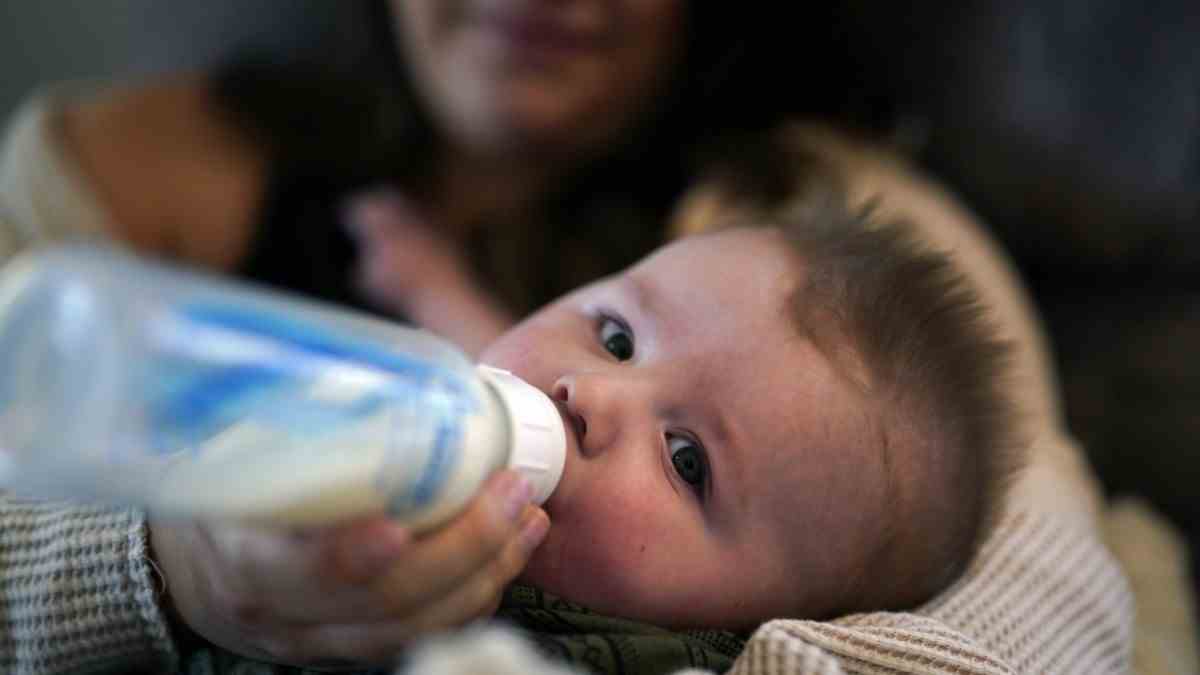Recipes, handicraft instructions and nutrition tips are very popular with parents of small children, also on Instagram or Tiktok. For a few days, however, American users have been passing around a recipe from the 1960s that has pediatricians concerned: 278 ml of condensed milk, 566 ml of boiled water and two level tablespoons of corn syrup. Makes six bottles of homemade “baby milk” daily. The reason for this, however, is not some obscure retro trend among social moms. It’s sheer desperation.
Infant formula has been missing in the US for months, but now the shortage is growing into a national crisis. In the meantime, stocks in the food trade have fallen by 40 percent, pictures of supermarket shelves being swept clean are making the rounds in the media, and grocery chains are limiting the number of items they can buy when they buy baby food.
In a country where one in five babies are already using powdered milk two days after birth and only one third of all infants are exclusively breastfed for over three months, this is causing panic. Parents report on shopping trips to neighboring states, on trying to save powder by diluting it or just working with a substitute. In the meantime, even the White House has gotten involved: President Joe Biden has announced steps to ensure supplies.
However, all sorts of political and economic obstacles stand in the way. The infant formula crisis is a prime example of the problems arising from two very American characteristics: the country’s rampant food protectionism and the labor vulnerability of many mothers.
The shortage of infant formula was among the first collateral damage in the pandemic-related supply chain drama in the US. In spring 2020 it was on almost as many hamster shopping lists as toilet paper, which resulted in massive price fluctuations and problems with production plans. Only products from US producers are permitted on the American market; unlike in Europe, the powder must be mixed with iron.
The main producer, Abbott, also offers special powders for babies with health problems. But after a bacterial attack at a plant, Abbott was forced to recall its products in February and shut down the plant. The lack cannot be compensated for, even if some US parents secretly import brands such as Holle or Hipp from Europe – which is not allowed and costs a lot.
The baby food crisis is hitting low-income American women particularly hard. They in particular are often dependent on cheap powdered milk for their children because they have no opportunity to breastfeed without maternity leave and postnatal care. Critics find it bitterly ironic that in addition to the abortion bans being pursued by Republicans, a baby hunger crisis is now to be feared in one of the richest countries in the world. All the more so because established Republican or Christian fundamentalist social users are also getting involved in the debate. Their tips sound like this: “Just try breastfeeding!”

